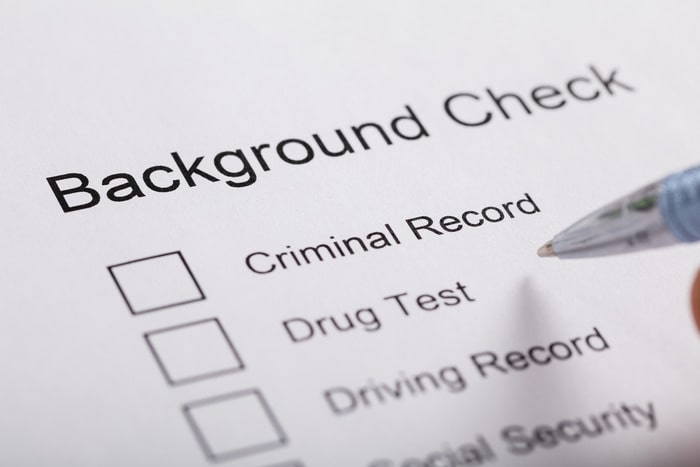
- October 22, 2023
- |security guard company
- | 0
Background Checks For Various Purposes –
Background checks are a critical component of decision-making in various aspects of life, from employment and tenant screening to personal relationships and security assessments. In this article, we will explore the process and significance of conducting background checks for a wide range of purposes. As the manager of XPressGuards, a prominent security guard company, we understand the importance of comprehensive background checks in ensuring safety and trustworthiness.
Understanding Background Checks
A background check is the process of investigating and collecting information about an individual, typically in a structured and systematic manner. The information gathered is used to verify the accuracy of the individual’s claims, assess their suitability for a particular role or purpose, and ensure the safety and security of an organization or individual.
Background checks can encompass various aspects of an individual’s history, including but not limited to:
– Criminal history: Checking for prior convictions or arrests.
– Employment history: Verifying the accuracy of an applicant’s work history.
– Credit history: Assessing an individual’s financial responsibility and creditworthiness.
– Education and credential verification: Confirming the validity of educational degrees and professional certifications.
– Reference checks: Contacting individuals who can vouch for an individual’s character and work ethic.
The Process of Conducting Background Checks
The process of conducting background checks typically involves the following steps:
1. Obtaining Consent
In most cases, obtaining the individual’s written consent is necessary before conducting a background check. This consent is often provided through a release form, which outlines the scope and purpose of the background check.
2. Information Collection
Background check services gather information from various sources, which may include:
– Criminal databases: To check for arrests and convictions.
– Credit bureaus: To assess an individual’s financial history and creditworthiness.
– Employment records: To verify employment history and performance.
– Educational institutions: To confirm educational degrees and credentials.
– Personal and professional references: To assess character and work ethics.
3. Verification
Once the information is collected, it is subjected to verification and validation. This process may involve cross-referencing details provided by the individual with information obtained from various sources.
4. Reporting
The results of the background check are compiled into a report, which is then shared with the requesting party. The report typically includes a summary of findings, potential red flags, and any discrepancies identified.
Significance of Conducting Background Checks
Background checks play a vital role in various aspects of life, offering numerous benefits and enhancing safety and trust. Here are some of the key areas where background checks are significant:
1. Employment
Hiring Decisions: Employers use background checks to make informed hiring decisions. They can verify a candidate’s qualifications, work history, and assess potential risks.
Workplace Safety: Conducting background checks can help identify individuals with a history of violence or criminal activity, contributing to a safer work environment.
Protecting Sensitive Information: In roles involving access to sensitive information or financial assets, a background check is essential to prevent data breaches or fraud.
2. Tenant Screening
Risk Mitigation: Landlords use background checks to assess the reliability and responsibility of potential tenants, reducing the risk of property damage or unpaid rent.
Legal Compliance: Tenant screening helps landlords comply with fair housing laws and maintain a consistent screening process for all applicants.
3. Personal Relationships
Dating and Relationships: Individuals may use background checks to ensure the safety and trustworthiness of potential partners, especially in the age of online dating.
Childcare Providers: Parents often conduct background checks on potential childcare providers to ensure the safety of their children.
4. Security Assessments
Security Clearances: Government agencies and security organizations use background checks to determine an individual’s eligibility for security clearances and access to classified information.
Security Personnel: Employers in the security industry, like XPressGuards, rely on background checks to ensure the integrity and trustworthiness of their personnel.
5. Financial Transactions
Lending Decisions: Financial institutions and creditors use credit history checks to assess an individual’s creditworthiness before extending loans or credit.
Fraud Prevention: Background checks help organizations prevent fraudulent activities and protect their financial interests.
6. Educational and Professional Qualifications
Credential Verification: Educational institutions and professional organizations conduct background checks to verify the accuracy of degrees, certifications, and qualifications.
Maintaining Standards: Verification ensures that individuals meet the required standards and ethics for their respective professions.
7. Volunteer Organizations
Child and Vulnerable Adult Protection: Organizations that work with children or vulnerable adults conduct background checks on volunteers to ensure their safety.
Trustworthiness: Background checks help build trust between volunteers and the organizations they serve.
Legal and Ethical Considerations
While background checks provide invaluable information for decision-making, it’s important to adhere to legal and ethical guidelines during the process. Some key considerations include:
– Compliance with
Privacy Laws: Ensure that background checks comply with applicable privacy laws, such as the Fair Credit Reporting Act (FCRA) in the United States.
– Informed Consent: Obtain the individual’s informed consent before conducting a background check.
– Accuracy and Fairness: Ensure that the information collected is accurate and that any discrepancies are addressed fairly with the individual.
– Non-Discrimination: Avoid discrimination based on protected characteristics, such as race, religion, gender, or age, during the decision-making process.
Background checks are a powerful tool for making informed decisions in various aspects of life, including employment, tenant screening, personal relationships, security assessments, financial transactions, educational and professional qualifications, and volunteer organizations.
By conducting thorough and ethical background checks, individuals and organizations can enhance safety, trustworthiness, and the overall quality of decision-making processes, contributing to safer and more secure environments. As the manager of XPressGuards, we emphasize the significance of background checks in the security industry and promote their responsible and ethical use in our services. Contact us to learn more.


